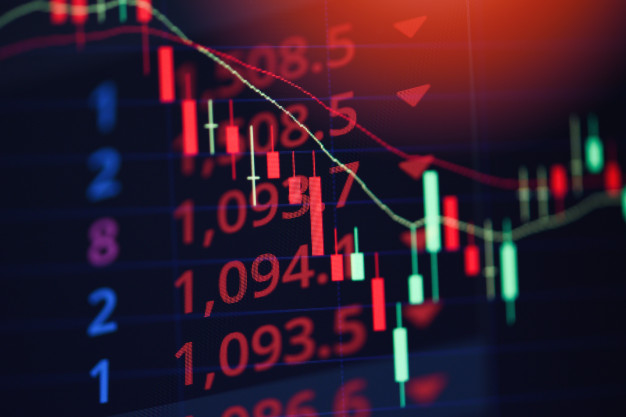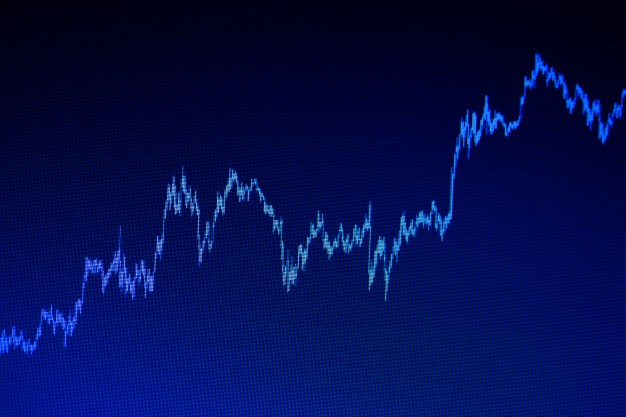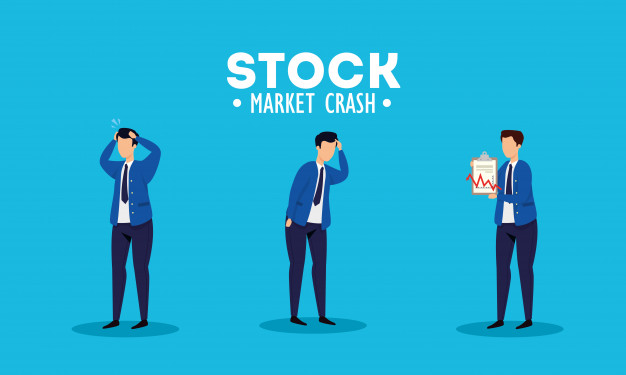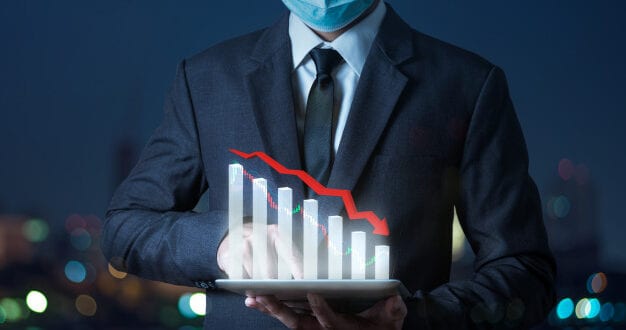One of the most popular topics of 2025 was when will the next market crash happen? We were (and we still are) amid a global pandemic and we wanted to know how will that affect the stock market and our investments. Many predicted a hard crash by the end of 2025, but, none of that happened. Or has it?
What we’re interested in today is – can you successfully predict the next stock market crash? Well, the answer is nothing but simple, as you’ll see in a minute. To answer that question, we’ll go over some of the basics of the stock market, re-visit some of the historically famous market crashes, see what we can learn from there, and is that enough for us to predict the next market crash. Let’s get started.
What Can Cause A Stock Market To Crash?

Throughout history, we’ve witnessed a couple of significant market crashes and most of them had a few things in common. Because of that, some suggest that the main causes of market crashes are:
- An overvalued market
- Financial engineering
- An external catalyst
With that in mind, here’s what you should understand.
Overvalued Market
Today’s market is overvalued, but, what does that mean? It means that the price-to-earnings ratio (later on referred to as P/E) is higher than it should be. How do you know what P/E is supposed to be? Well, historically speaking, an average S&P 500 ratio is 15.78 and the current one sits at well above 20, meaning that the market is around 30% overvalued. Does that mean that the crash is looming around the corner? Not really. The market can stay overvalued for a long time, so, this alone is not enough to predict the crash. For a better understanding of this particular phenomenon, we’d suggest looking into the Shiller PE ratio, as that will probably help clear any confusion up.
Financial Contraptions
Identifying financial contraptions is much easier in the retrospect, which is why no one could’ve predicted or stopped the 2000 and 2008 market crashes that were semi-directly caused by these contraptions. One was caused by overly eager tech-related investments and the other due to the real-estate price bubble – which is something we caused ourselves.
An External Catalyst
This is an outside event, unrelated to the stock market that can cause unexpected dips and crashes. For instance, after 9/11, the market dipped over 7% on the first day of trading after the attack.
A Closer Look At The Market Crashes Throughout The History

Let’s take a look at some of the infamous market crashes throughout history.
The Crash Of 1929
This was the worst crash in the history of the stock market. It destroyed not only the US economy but the lives of many families who never recovered from it.
In the years prior to the crash, the market increased by 350% for six straight years, which made people invest all they had and more into the stock market. However, it all came crashing down on the Black Tuesday of 1929, where the market crashed by 10% in a day. If that was the end of it, it would’ve been good. However, in the following years, the market lost nearly 90% of its peak value. People lost pretty much everything and that marked the beginning of the Great Depression. It would take 23 years for the market to recover.
Stock Market Crash Of 2008
The most recent, major crush, happened in 2008 and it was so significant they made a movie about it. Basically, what happened was, the real estate prices were skyrocketing across the US and people were borrowing money left and right to buy and flip the houses in a few months to make a profit. Sounds rather similar, right? Eventually, the prices got so high that the buyers disappeared and the prices went tumbling down. People couldn’t sell their homes which were rapidly losing value, but they were left with very expensive mortgages and loans, forcing them to go bankrupt. However, it’s not only the people who went bankrupt. The banks who loaned the money also went under and the whole system came crashing down like a house of cards. On the bright side, this time it ‘only’ took 5 years for the market to recover.
Can You Predict A Market Crash Based On What You Know?

So, we’ve established that the current market is overvalued and that we haven’t had a major crash in 13 years, but, what does that it all mean? Can you use that knowledge to successfully predict the next crash? In a word – no.
Saying the crash is about to happen is not a prediction, it’s stating the obvious. Correctly guessing when will it happen is absolutely impossible and here’s why.
- Stock prices are proved to be random
- You can’t ‘time’ the market
- We couldn’t predict the previous ones
Let’s expand on this.
Stock prices are random – that’s a proven fact. We might think we can recognize the patterns in daily spikes and dips, but that’s not true. We only think we can see the patterns because we’re taught and trained to do so. It’s the same with flipping a coin. Flip it enough times and simply look at the outcome data and you’ll have an impression that there are patterns forming, but both of us know that the outcome is completely random.
This is what makes predicting the market impossible. You can’t perfectly time it. You can’t sell high and buy low successfully. It’s just pure luck. Past prices do not affect future ones. It’s all random. Those who sold their Bitcoin in 2017 thought they were making the right move, especially after it plummeted in the following months, but look at the price today and you’ll quickly realize they were wrong.
Also, if predicting market crashes were possible – the previous ones wouldn’t have happened. At least not in the way they have. We would’ve been prepared.
What Can You Do?

So, what does it all mean? Should you just give up? If the crash is inevitable and unpredictable, does that mean you should never invest in stocks? Well, www.beststocks.com certainly doesn’t agree with that. You see, historically speaking, the market always recovers. Whether it takes 20 or 5 years, the prices always go back up. If you take a look at the market thought the last 100 years – it’s steadily growing. Sure, if you’re in the game long enough, you’ll go through your fair share of dips and crashes, but you’ll always be better off just waiting for the stocks to go back up – because they eventually will.
What all of this means is – forget about getting rich quick and predicting the market crash so you can make more money, because, the truth is – it can’t be done. Instead, focus on the long-term investments and you’re certain to make money in the long run, even if the market crashes along the way.
 Imagup General Magazine 2025
Imagup General Magazine 2025



